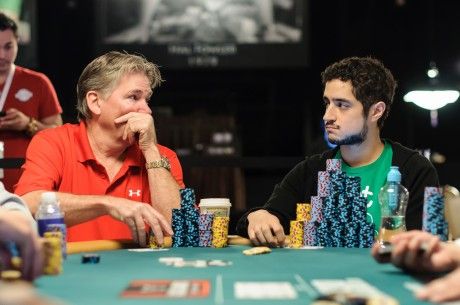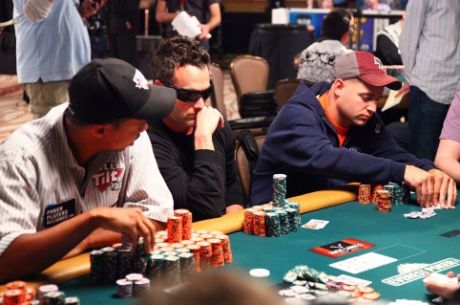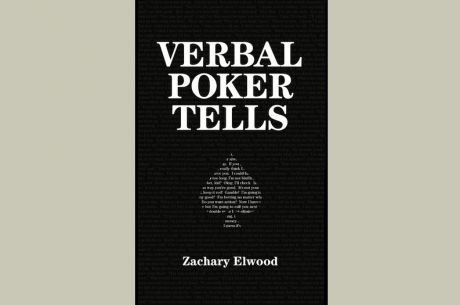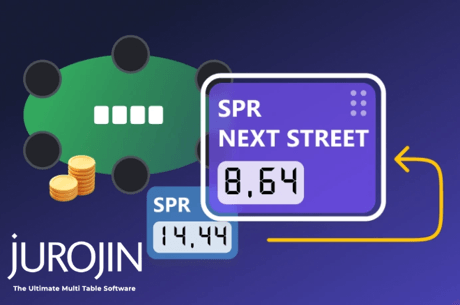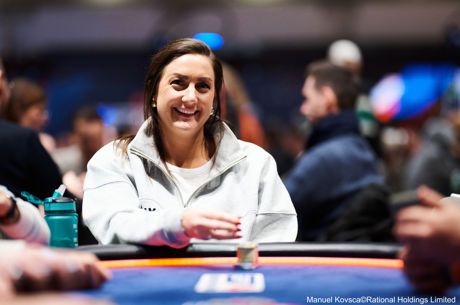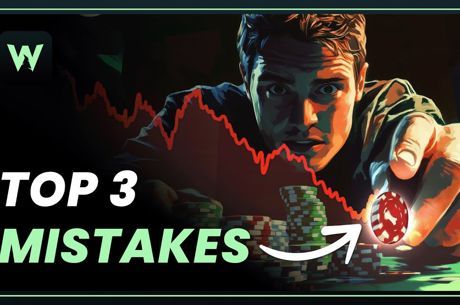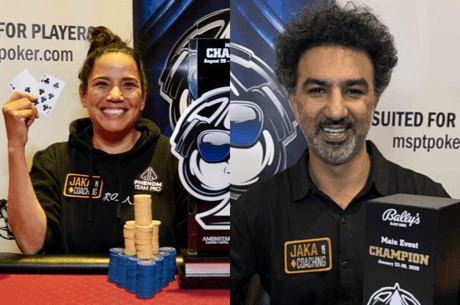Poker Tells: A General Theory About Attention-Grabbing Behaviors, Part 1
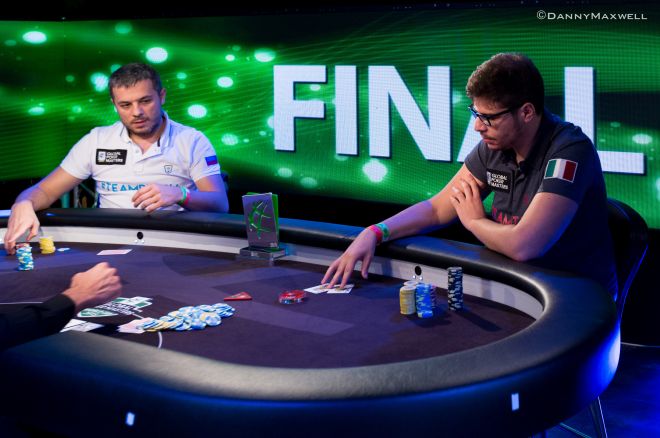
My ideas about poker tells have changed a lot over time, and continue to evolve. Looking back on my first book, Reading Poker Tells, there are a number of things I’m unhappy with and would phrase differently if I were to write it now. Part of this is just improving as a player and gaining more experience, but a big part of it has been that the process of writing about poker tells has forced me to be more rigorous in how I think about poker behavior.
It is difficult to communicate in an intelligent way about poker behavior, as there is admittedly so much ambiguity and variety present. But I think the process of trying to improve my communication skills has improved my thought process.
I recently started working on some projects requiring in-depth analysis of poker footage, now available as two “Poker Tells Guides” on my site. As I worked through the footage, I started thinking more about a general behavioral theory I had introduced in my second book, Verbal Poker Tells. The theory applies to verbal behavior, but as I worked through the footage, I started seeing how the theory was actually part of a larger theory, affecting not just verbal behavior but also physical tells.
The verbal pattern could be explained, very roughly, using these three points:
- Early-hand talking, when the pot is small, will mostly come from players with weaker hands
- Later-hand talking from non-aggressing players (i.e., callers and checkers), will also tend to indicate weaker hands
- Later-hand talking from players making significant bets, when the pot is larger, will tend to indicate stronger hands
What are the reasons for these patterns? In this two-part series, I’ll look at some of the underlying reasons for these verbal tendencies first, and then look at how these patterns also impact non-verbal, physical behaviors.
Early-hand talking, when the pot is small, will mostly come from players with weaker hands
The main reason for this pattern is the opposite tendency — players with strong hands, when the pot is small and there are still a lot of decisions to be made, tend to stay silent. This is because they are focused on the situation and focused on maximizing their profit.
For example, a player who raises preflop with AxAx knows he is most probably going pretty far with this hand. He has a motivation to think about the best raise size, to consider his opponents, and to come up with a postflop plan versus the opponent or opponents who call him. These thoughts occupy his mind and make him more likely to be silent.
Meanwhile a player raising with a weak hand has less reason to be focused. He’s generally either going to improve, in which case he’ll wait to think about that situation when it occurs, or he’s most often going to be giving up his hand if unimproved. This is especially the case when he gets more than one preflop caller — most preflop raisers with multiple callers will tend to shut down on their bluffs and play more straight-forwardly.
These factors together make weak-hand bettors in these situations less focused or thoughtful. They know they are not necessarily going far with the hand and have less reason to be thinking about the situations. These factors also help account for a lot of the joking statements from preflop raisers who get more than one caller, something I described in detail in Verbal Poker Tells. You might think of it as a release of stress due to the player no longer having the spotlight on him and feeling less pressure to be in full “game face.”
Players with strong hands also tend to stay silent because they don’t want to “scare away” opponents. For example, a player betting a set on a non-scary rainbow flop is unlikely to say anything, because it’s possible saying something would make an opponent wary. This is especially true when a pot is small and a player would feel like having an opponent fold would be a “waste” of a good hand. (This is why pot-size is a factor in behavior, which we’ll talk more about in a moment.)
But most players are silent early in a hand (or during a hand in general). This is why silence early in a hand isn’t really important and the main practical information is the talking itself.
This pattern will mostly serve to make very strong hands less likely. Preflop, talking will serve to make AxAx, KxKx, QxQx, and AxKx-suited less likely. Postflop, a lot will depend on board texture and the size of the pot. For example, a player who c-bets on a non-scary rainbow flop when the pot is small and who then talks to his opponent is less likely to have a set. There are still a good amount of strong hands possibly in these players’ range; the point is that we should feel confident discounting (which is different than eliminating) the strongest hands from a player’s range. This will sometimes be very important, game-changing information.
Of course, these are general tendencies. Everyone is capable of breaking these patterns. But you’d be surprised how often this pattern holds true. Recently, I’ve been going through some tournament footage for a new project I’m working on in which there is a decent amount of early-hand talking, and almost none of it comes from players with strong hands. Players who have been dealt AxAx and KxKx, or players who flop especially well, are almost always silent, even when these players have shown themselves fully capable of talking with weaker hands in the same types of situations.
One other important note: this pattern is generally only useful for unprompted verbal behavior. In other words, if a player is prompted to talk (e.g., asked a question or otherwise engaged), that player is more likely to talk, making it less meaningful and less likely to adhere to the pattern.
Later-hand talking from non-aggressing players (i.e., callers and checkers), will also tend to indicate weaker hands
In the same way, verbal behavior from the non-aggressing player (i.e., the player checking or calling) will tend to be associated with weaker hands. This is also due to the same reasons:
- Non-aggressing players with strong hands are, by definition, setting a trap, and players setting a trap like to stay quiet. For example, a player checking a full house on the river has an instinct to stay quiet and not set up an obstacle to his opponent betting. He doesn’t want to make him wary.
- Non-aggressing players with weak hands have a motivation to say something — anything — to potentially scare an opponent out of betting. This accounts for a huge percentage of non-aggressor talking being defensive in nature. We’ve all seen players check on the river and say something like “Be careful” or “Don’t bet, I’m not calling” or the like. Almost all cases of this type of talking will be defensive.
Later-hand talking from players making significant bets will tend to indicate stronger hands
When the pot gets bigger, and when the hand gets closer to being over, the motivations and thought processes of bettors change in a few ways:
- Players betting strong hands are more content with winning the existing pot. As the pot becomes bigger, they no longer have a reason to be wary of “scaring away” an opponent, as they may have been in the beginning of a hand. This results in more relaxed, less cagey, less “trap-setting” behavior.
- As the hand nears the end, a bettor with a strong hand has less to think about. While he may have had reasons to focus on the situation and think about his plan early in a hand, now that the hand is close to over, and there are less decisions (or no decisions) to be made, the bettor is more free to cut loose and engage in table talk.
- Players making big bluffs have a tendency to stay quiet. Bluffers don’t want to be examined and are much more restrained in their behavior in general.
For all of these reasons, most verbal behavior from players making significant bets will tend to indicate relaxation. This is where the concept of the “speech” comes into play; most people are familiar with the concept that a player who bets and makes a speech will generally be relaxed and strong.
Keep in mind these latter points apply to players making significant bets, not to non-aggressors. Also keep in mind that these, as with all poker tell philosophy, are general points. There are some players who talk consistently, whether weak or strong, and there are many players who understand these general tendencies and will try to be deceptive with their own behavior to emulate the opposite-hand-strength behavior. But we are talking about general tendencies that will apply to the majority of situations that you will see.
Examples
Here are a couple of small, subtle situations of early-hand verbal behavior that would make me confident that these players didn’t have the top of their range. The examples come from Windy City Poker Championships footage, courtesy of Kirk Fallah at Fallah Productions.
The first one shows a player making a comment after raising and watching his opponent call. Take a look:
In this hand the player in the small blind (Neal) raises with 8♣2♥, gets a call, and says “Snap call again, huh?” This is pretty common behavior from someone raising with a weaker hand — you’ll hardly ever see it from players who raise with QxQx+. Again, it’s mainly useful for discounting the top part of a player’s range, which can sometimes be very valuable to do.
Here’s a second example to consider. In this one a player (Paul) has raised from early position with A♥J♣, gotten three-bet, and the action has come back to him. Listen to him as he calls the reraise:
Notice how he says “Nine? All right. Only chips” and calls. This player’s talking here — especially coupled with his fairly quick call — indicate a lack of focus on the situation, which will make strong hands unlikely. Similarly, if he were trapping with AxAx or KxKx, he’d be more likely to have an instinct to stay quiet and not draw attention to himself.
In the second part, we’ll continue the discussion with more clips featuring attention-grabbing behaviors both early and later in hands that further illustrate the points discussed above.
Zachary Elwood is the author of the books Reading Poker Tells and Verbal Poker Tells, available in paperback and e-book formats via via Elwood's website. He recently released a new poker tells video series, available at www.readingpokertells.video.
Get all the latest PokerNews updates on your social media outlets. Follow us on Twitter and find us on both Facebook and Google+!

